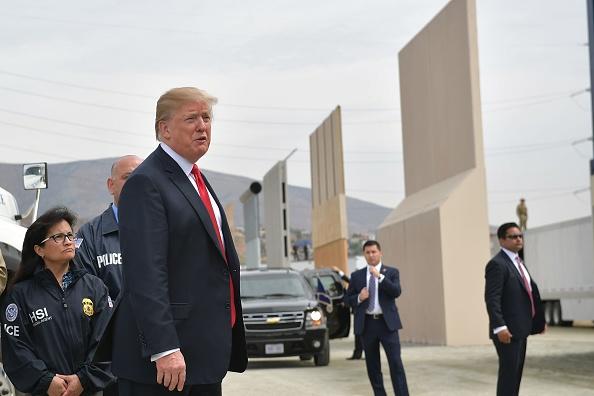President Donald Trump has solidified his suggestion that the U.S. military will build the wall along the southern border, as the chances of Congress passing funding for the project by the Dec. 21 deadline shrinks.
“Because of the tremendous dangers at the Border, including large scale criminal and drug inflow, the United States Military will build the Wall!” Trump wrote in a Dec. 19 tweet.





